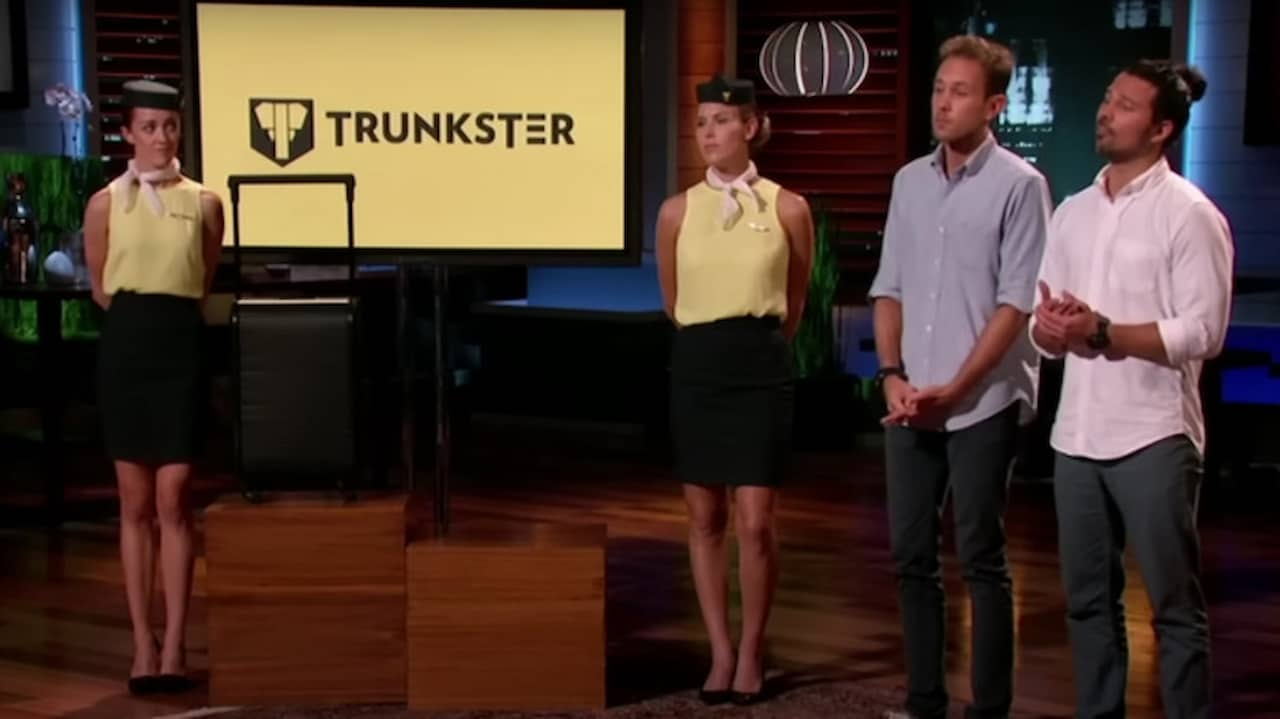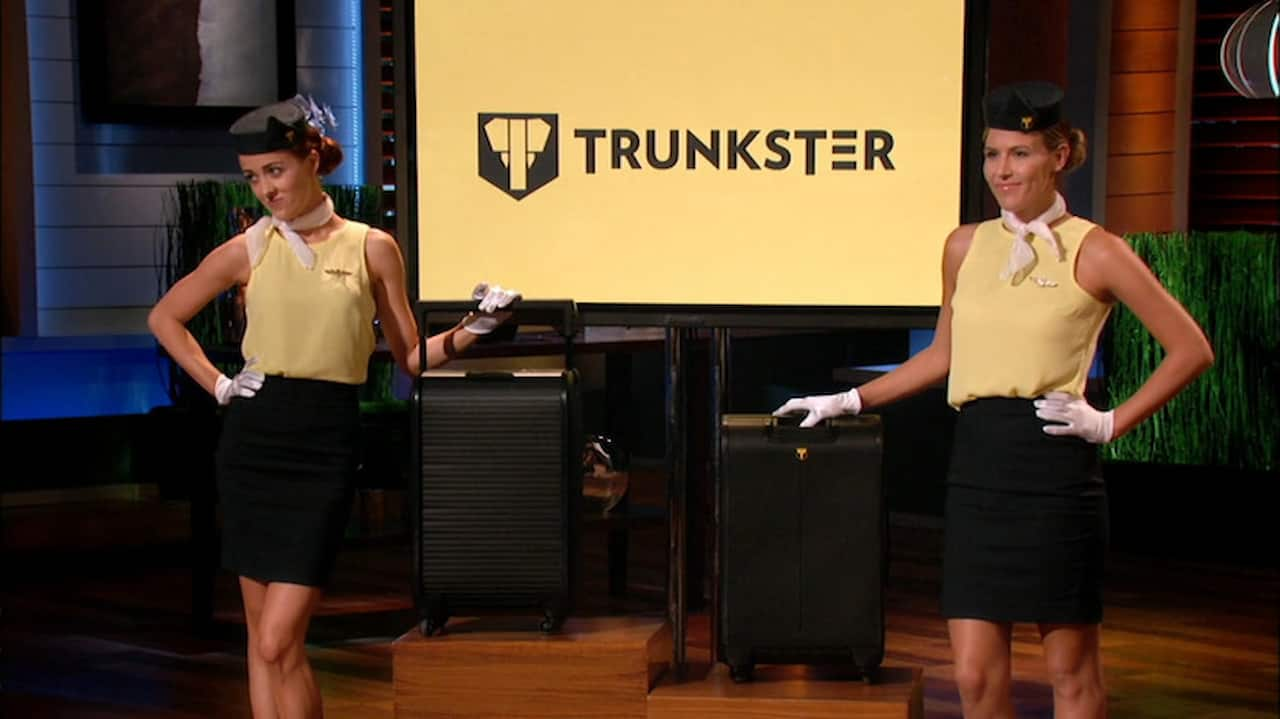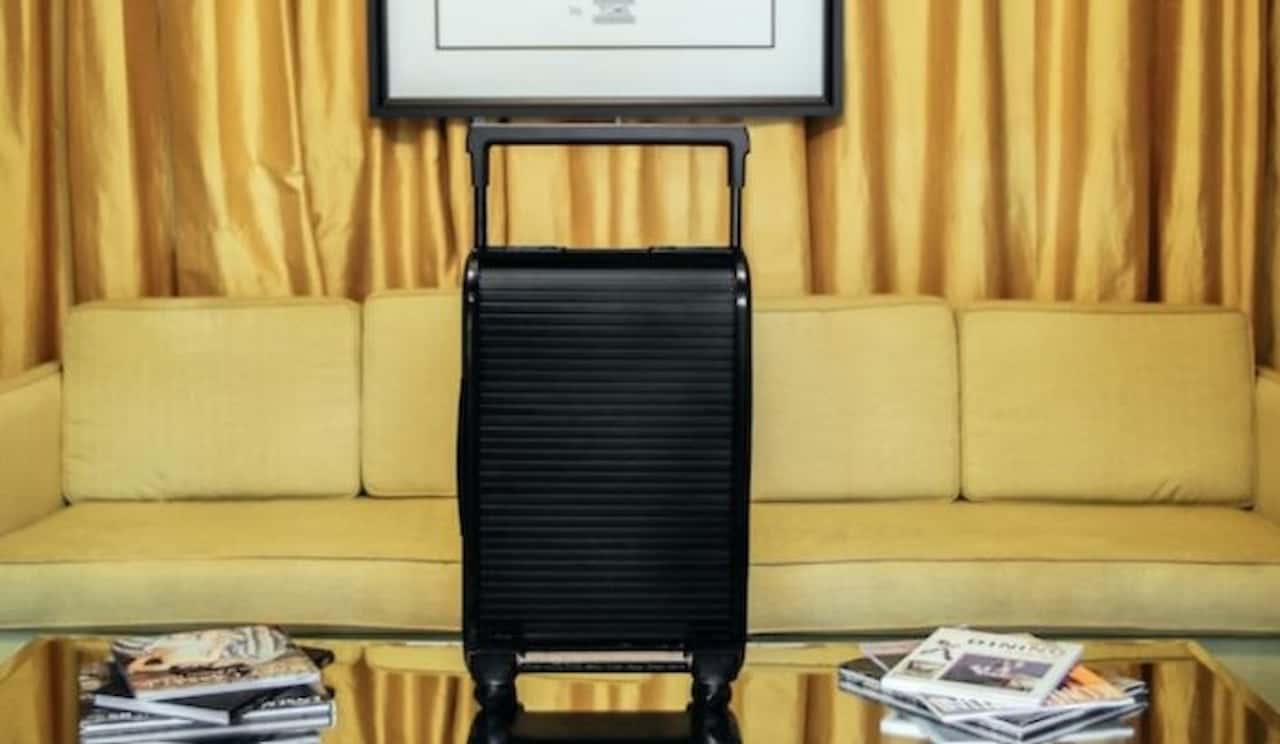From Shark Tank Snub to Bankruptcy: The Rise and Fall of Trunkster
Trunkster burst onto the travel scene with big promises of revolutionizing luggage. This intelligent suitcase startup captured the imagination of travelers and investors alike with its innovative design and high-tech features.
But what was Trunkster worth? And what became of this once-promising company? Let’s unpack the story of Trunkster’s net worth – from crowdfunding sensation to Shark Tank pitch to eventual downfall.
| Detail | Information |
|---|---|
| Company Name | Trunkster |
| Founded | 2014 |
| Product | Zipperless smart suitcase with high-tech features |
| Founders | Jesse Potash (New York), Gaston Blanchet (Argentina) |
| Key Features | USB charging ports, GPS tracking, digital scale, all-terrain wheels, roll-top design |
What is Trunkster?
Trunkster was a smart luggage company founded in 2014. Their main product was a zipperless suitcase with a roll-top door, kind of like a mini garage door for your luggage. It had built-in features like:
- USB charging ports
- GPS tracking
- A digital scale to weigh your bag
- All-terrain wheels
The idea was to make traveling easier with high-tech luggage. Trunkster’s suitcases looked sleek and modern, a far cry from regular old duffel bags and roller bags.
Who Is The Founder Of Trunkster?
Trunkster was started by two guys: Jesse Potash and Gaston Blanchet. Potash was from New York, while Blanchet hailed from Argentina. They were young entrepreneurs looking to shake up the luggage industry.
Potash got the idea when he went luggage shopping and thought all the bags looked the same. As a millennial, he wanted to create cool luggage with some personality. Blanchet joined him to help turn the idea into reality.
How Was The Shark Tank Pitch for Trunkster?
In 2015, Potash and Blanchet appeared on Season 7 of Shark Tank. They were looking for big money – $1.4 million for just 5% of their company. That put Trunkster’s value at a whopping $28 million!
The Sharks were impressed by Trunkster’s design but shocked by the huge valuation. After all, Trunkster hadn’t even shipped a single suitcase yet. All their value came from pre-orders and high hopes for future sales.
After some back-and-forth, Mark Cuban and Lori Greiner made a deal. They offered $1.4 million for 5% equity each, plus some special terms. If Trunkster didn’t pay back the money in 2 years, the Sharks’ stake would double. They’d also get $1 per suitcase sold.
Everyone shook hands, but this feel-good moment wouldn’t last.
| Detail | Information |
|---|---|
| Season and Year | Season 7, 2015 |
| Requested Investment | $1.4 million for 5% equity |
| Valuation | $28 million |
| Offer Accepted | $1.4 million for 5% each (Mark Cuban & Lori Greiner) |
| Deal Status | I fell through after the show due to financial concerns |
Trunkster Shark Tank Update:
Sadly, the deal with Mark and Lori never actually happened. After the show, the Sharks took a closer look at Trunkster’s books. They didn’t like what they saw and backed out.
Without the Shark money, Trunkster struggled. They had trouble making and shipping their suitcases. Many people who pre-ordered never got their bags. Those who did get them often complained about poor quality.
By 2017, Trunkster had gone silent. Their website shut down and they stopped talking to customers. It seemed the company had vanished – along with lots of people’s money.
What Happened To Trunkster After Shark Tank?
After their Shark Tank appearance, things went downhill fast for Trunkster:
- They faced big delays in making their suitcases
- When bags did ship, many customers weren’t happy with them
- Bigger luggage companies started making their own smart suitcases
- Trunkster couldn’t keep up with the competition
- By 2017, the company had pretty much disappeared
Today, Trunkster is out of business. Their dream of changing how we travel turned into a nightmare for many unhappy customers.
Trunkster Growth and Operations:
Trunkster’s growth was more hype than reality. They raised tons of money through crowdfunding – over $2.7 million on Kickstarter and Indiegogo. But they had trouble turning those pre-orders into actual products.
Their operations were plagued with issues:
- Manufacturing delays kept pushing back delivery dates
- Quality control seemed lacking, with many complaints about the finished product
- Customer service was poor, leaving many buyers frustrated and angry
In the end, Trunkster’s ambitious plans were too much for the young company to handle.
Investments and partnerships
Besides their crowdfunding success, Trunkster’s biggest almost-investment was the Shark Tank deal. But when that fell through, they were left without the cash and connections they needed.
We don’t know of any other major investments or partnerships Trunkster made. It seems they relied heavily on pre-order money to fund their operations.
Challenges and competitors
Trunkster faced some big hurdles:
- Manufacturing difficulties
- Unhappy customers
- Growing competition from established luggage brands
Companies like Away and Bluesmart were also making smart luggage, often at lower prices. Trunkster couldn’t keep up with their faster production and slicker marketing.
Technological innovations
Trunkster’s tech features were cool for 2015, but they weren’t unique for long. Other companies quickly caught up, offering similar charging, tracking, and weighing capabilities.
One innovative aspect was Trunkster’s zipperless design. But it seems this wasn’t enough to set them apart in a crowded market.
Trunkster Net Worth and Financial Performance:
It’s hard to pin down Trunkster’s exact net worth. On Shark Tank, they claimed to be worth $28 million. But this was based on pre-orders and optimistic projections, not real profits.
In reality, Trunkster’s financial performance was poor:
- They raised about $2.7 million through crowdfunding
- But they struggled to deliver products and satisfy customers
- Any profits were likely eaten up by production costs and refunds
- The company shut down without fulfilling many orders
In the end, Trunkster’s net worth dropped to zero when they went out of business.
| Detail | Information |
|---|---|
| Crowdfunding Raised | $2.7 million |
| Shark Tank Valuation | $28 million (based on pre-orders) |
| Actual Net Worth | Dropped to zero due to company failure |
| Profitability | Poor due to high costs and refunds |
Trunkster Strategy of Marketing and Sales:
Trunkster’s marketing focused on the novelty of their product. They pushed hard on social media and crowdfunding platforms. Their Shark Tank appearance was also a big publicity boost.
Their sales strategy relied heavily on pre-orders. This gave them cash up front but created problems when they couldn’t deliver on time.
Trunkster’s marketing painted a picture of luxury travel and cutting-edge tech. But they couldn’t back up their promises with a solid product.
Trunkster Social Media Presence:
During their heyday, Trunkster was active on platforms like Facebook and Twitter. They shared sleek product photos and travel tips to build buzz.
But as the company ran into trouble, their social media went quiet. Today, all their accounts have been deleted. This disappearing act left many customers feeling ripped off and angry.
Trunkster Interesting Facts:
- Trunkster reached their Kickstarter goal in just one hour
- They set a record for the most-funded luggage campaign on Kickstarter
- The founders only invested $5,000 of their own money to start the company
- Trunkster’s carry-on size was priced at $495, with the larger check-in size at $535
- Despite never shipping most orders, Trunkster was featured in magazines like Forbes and Vogue
What’s Next For Trunkster?
Sadly, there is no “next” for Trunkster. The company is dead, leaving behind a trail of unfulfilled orders and upset customers.
As for the founders:
- Gaston Blanchet now works at a company called Storypod, making educational toys for kids
- Jesse Potash seems to have disappeared from public view
The smart luggage market lives on, but Trunkster is just a cautionary tale now.
Final Words:
Trunkster’s story is a classic case of a startup flying too close to the sun. They had a cool idea and lots of hype. But they bit off more than they could chew.
From a $28 million valuation to total failure, Trunkster’s net worth rollercoaster shows how quickly things can change in the startup world. It’s a reminder that pre-order success doesn’t always translate to a real, profitable business.
For travelers, the lesson might be: stick with established brands when spending big bucks on luggage. And for entrepreneurs? Make sure you can deliver on your promises before you make them.
Trunkster aimed to reinvent the suitcase. Instead, they became a blueprint for how not to run a startup. Their legacy lives on in angry comments on Kickstarter and as a Shark Tank deal that never was.



